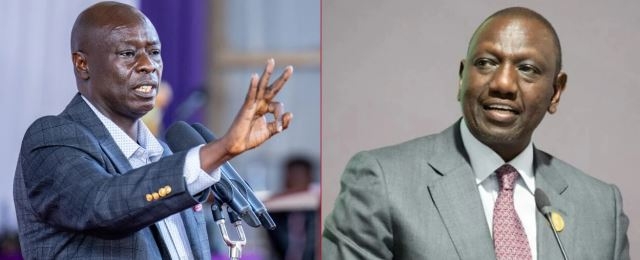I was watching the analysis preceding the presidential debate when one of the studio experts aptly mentioned that one of the issues he wanted the presidential candidates to address was that devolution had become too expensive.
It was his contention that resources sent to the counties had been largely wasted and stolen, even as some candidates promise to increase the funds sent to devolved units. He concluded by stating that devolution would serve no purpose if it was merely used to enrich governors and MCAs.
It reminded me of a matter often ignored in Kenya’s election season; the place of Chapter Six in the clearing of candidates. In a weak attempt at complying during the forthcoming election, the IEBC, currently mired in what looks like institutional incompetence and disgrace, duly barred aspirants who had been impeached from being on the ballot.
However, former Nairobi Governor Mike Sonko, who has moved base to Mombasa, is still challenging this as I write this.
Indeed, no less a person than Wiper leader Kalonzo Musyoka, who is set to be the Chief Minister should the Raila-Karua ticket win the election, has declared that he will not sleep until Sonko is on the ballot.
Given the top role he will play in a government founded primarily on an anti-corruption footing if they win, I wonder how Kalonzo reconciles his strong stand for Sonko with the latter’s impeachment and chaotic management record at City Hall.
What bothers me is not only that these impeachments and attempts to implement the requirements of Chapter Six are opposed by party and tribal interests, but also that in certain cases, there are much better coalition candidates on the ballot.
In the Azimio coalition, for example, the frontrunner, Abdulswamad Shariff Nassir, gives his coalition everything that Sonko is not. The gentleman of coastal politics remains one of the biggest preachers of the unity message, has been voted one of the best managers of CDF and when terrorists attacked Mpeketoni in 2014, was one of the most visible providers of support to families of victims.
Effectively, therefore, it is not for lack of a good candidate already flying the Azimio flag that Wiper would want to force Sonko on the ballot.
Essentially, if devolution is expensive, there is an element of character and history where state institutions that should keep the lid on suitability for high office, including IEBC, go to sleep leaving Kenyans to their own devices.
Mombasa may be a microcosm of what happens in the rest of the country with regard to what I call the “Sonkonization” of politics. It is the philosophy of quick fixes, quick riches, empty populism and vanity of rhetoric which instal the most incompetent people into office.
As I point out quite often, the ultimate result of it all is that the populace could unwittingly enable criminal networks into the country’s biggest offices, with the resultant effect that state institutions could fall prey to cartel culture.
It is time to have a serious conversation about Chapter Six and whether or not we really want it to work for us. The precedent set by one person barred from the ballot, then is readmitted before being barred again, leaves behind the disturbing legacy where we clearly have no set method to keep unsavoury characters from getting into elective office.
This is a big shame because it means either the statutory frameworks are not well laid out, or implementation isn’t on the cards.
Political commentator

















